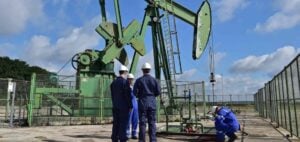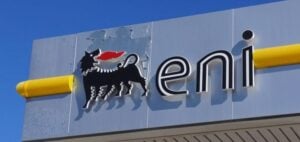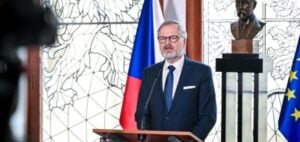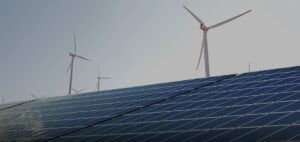Italian hydrocarbon giant Eni saw its second-quarter net profit plunge by 92% to 294 million euros, bearing the brunt of falling oil and gas prices.
Eni plans to increase the share of gas in its production to reduce its dependence on Russia
This result, published on Friday, was well below the consensus of analysts from financial information provider Factset, who were expecting a profit of 1.63 billion euros. Adjusted net income – an indicator closely scrutinized by the markets as it excludes exceptional items – also fell, to 1.93 billion euros, down 49%.
Like its competitors, the Italian group had benefited last year from soaring gas and oil prices, due to the post-pandemic economic recovery and Russia’s invasion of Ukraine. In 2022, Eni posted a record net profit of 13.8 billion euros, its best in over two decades, thanks to soaring oil and gas prices. The scenario was quite different in the second quarter of 2023: the price of a barrel of Brent crude from the North Sea averaged $78.39 over this period, a drop of 31%, Eni said in its press release. As a result of lower prices, the Italian group’s sales also fell, by 38% to 19.59 billion euros, again below analysts’ expectations of 27.25 billion euros.
Adjusted operating profit (Ebit) fell by 42% to 3.38 billion euros in the second quarter. For the full year, Eni is still forecasting adjusted Ebit of 12 billion euros, despite the fall in oil prices. Eni’s hydrocarbon production rose by 2% to 1.61 million barrels per day in the second quarter, after falling by 4% in 2022. Eni plans to increase the share of gas in its production to 60% by 2030, from around 50% at present, to reduce its dependence on Russia. With this in mind, at the end of June the Group announced the acquisition of British energy group Neptune Energy for $4.9 billion. On Tuesday, Eni also announced the purchase of US competitor Chevron’s interests in three gas fields offshore Indonesia, enabling it to strengthen its presence in this Southeast Asian country.





















